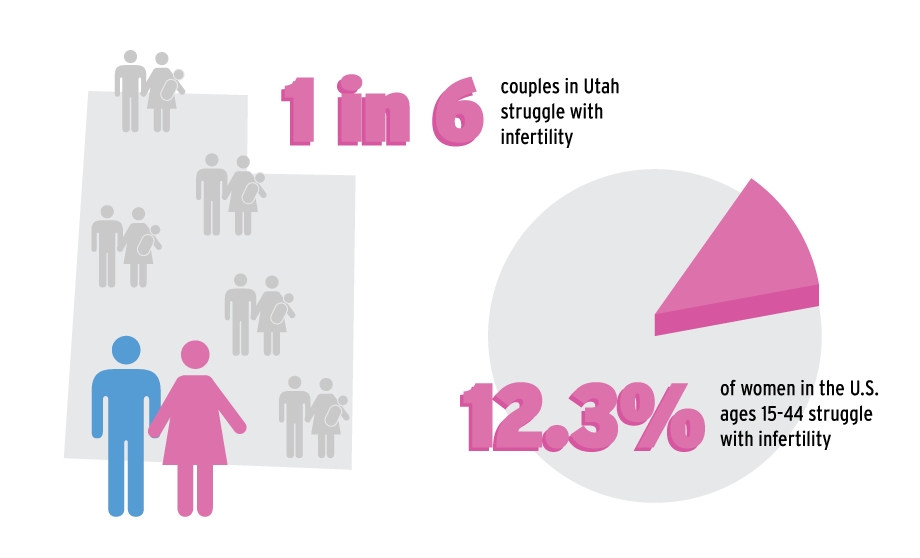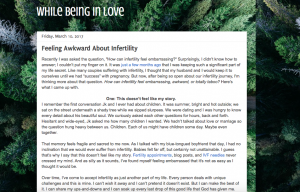Approximately 12.3 percent of women in the United States ages 15—44 have difficulty getting pregnant or staying pregnant, according to the Centers for Disease Control and Prevention.
One in six couples in Utah struggle with infertility, according to Utah Infertility Resource Center founder Camille Hawkins.
Hawkins said infertility is hard for Utah couples because they are more commonly asked when they’re starting a family or how many children they have compared to couples in other states.
“We have such a family-focused culture (in Utah) that when you’re struggling with infertility, it makes your experience extra difficult,” Hawkins said.
Hawkins has run infertility support groups for over three years. Infertility can cause those affected to close themselves off and question their self worth, Hawkins said.
“Infertility is such a personal thing because baby making is so personal,” Hawkins said.
Hawkins said people feel shame and inadequacy when they can’t get pregnant because they “identify being a parent as one of the most important things they can do.”
Infertility is most commonly caused by problems with ovulation in women and difficulty in properly producing sperm in men, as well as poor health decisions such as smoking, heavy alcohol consumption and poor diet, according to the U.S. Department of Health and Human Services.

There are also a number of unexplainable cases, such as BYU alumnus Ariel Jensen and her husband.
Jensen and her husband received test results after about three years of marriage indicating they would have a difficult time getting pregnant.
“Not sure where it came from. He’s totally healthy; his family has no problems,” Jensen said. “We didn’t tell anyone about it for a year. It was a really heavy, dark thing I was going through.”
Infertility affects the couples’ other family members as well, according to Benson Killpack, a senior studying business and human resources at BYU who has watched his sister and her husband cope with infertility.

“It’s almost claustrophobic as a family,” Killpack said. “We can’t talk or think about anything else. Of course, we keep going along and there are mostly happy times, but it’s just always on our minds. It’s just been surprising how much of a family event it has been.”
Hawkins said although confiding in family can be daunting, it is one of the best ways to cope with infertility. “Being open is a huge relief for people.”
Hawkins said reaching out to others who struggle with a similar circumstance is one of the most powerful coping skills, giving women and men who are struggling to have children a relatable support system.
“When you connect with other people (struggling with infertility), you realize you aren’t alone or crazy,” Hawkins said. “It makes people have a decrease in feeling alone, depression and anxiety.”
Both Killpack’s sister and Jensen have been open on social media about their experiences.
Jensen said she felt like infertility wasn’t a commonly addressed topic, and she wanted people to know their feelings were normal, so she started a blog: “While Being in Love.”

“One of the benefits about coming out publicly about struggling with infertility is that we’ve met so many other people suffering with similar problems as well who come to us,” Jensen said. “We’ve provided relief for each other.”
Hawkins said every couples’ experience with infertility is different and being a good listener goes a long way.
“If you want to say something, say something like, ‘I’m really sorry you’re going through this; it sounds like such a difficult experience. How can I be there for you?’” Hawkins said.




